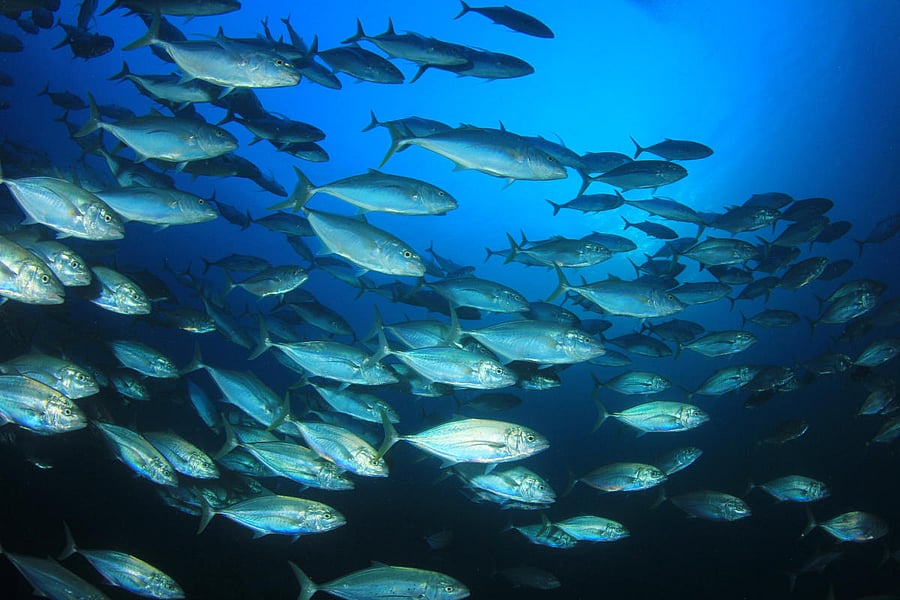
At the World Trade Organisation (WTO), negotiations have often been bifurcated on the point of development issues. One of the current issues at the WTO is on the negotiations for the agreement on prohibition of fisheries subsidies. India has fittingly recognised that the agreement neither curbs environmentally harmful fishing practices effectively, nor protects the resource-poor fishermen from losing their livelihood. This compels us to question the material contribution that this agreement may make for sustainable development.
Negotiations for this agreement were initiated in 2001, when concerns were raised about fisheries subsidies which were allegedly resulting in overexploitation of fisheries resources, leading to the depletion of the world’s marine wealth. Three environmental concerns were identified: subsidies contributing to illegal, unreported and unregulated (IUU) fishing; subsidies contributing to fishing of already overfished stocks; and subsidies contributing to overcapacity.
IUU fishing refers to activities in contravention of national or international obligations undertaken by concerned states to relevant fisheries management organisations. Overfishing refers to activities which deplete fish stocks at a rate faster than the rate at which the stock can replenish itself. Fishing at overcapacity refers to fishing at unsustainable levels.
Protection of the world’s marine resources and prohibiting harmful fisheries subsidies has been identified as a Sustainable Development Goal (SDG), which India has supported. However, during the WTO negotiations, India has called for a balance between fisheries conservation on the one hand and development concerns on the other.
An unbalanced agreement could harm the future ability of developing countries desiring to increase capacity to catch fish and trade. India has called for the negotiations to be cognisant of the fact that different negotiating members are at different levels of development, and the need to incorporate common but differentiated responsibility principle, wherein the agreement must permit undertaking different commitment levels by different countries based on their economic development levels. This would ensure the ability of all members to fulfil current and future economic needs, while also protecting the fisheries resources.
India’s call for balance in the outcome of negotiations is crucial, especially because many developed country members have already established their fisheries capacity and have been reaping significant economic benefits from their fishing activities.
These members have been exploiting fisheries resources more egregiously and for longer. Most developing countries need to catch up if they wish to enhance fishing capacity beyond their territorial waters. Thus, it is only fair that India has demanded that members follow the ‘polluter pays principle’. This means that the members responsible for greater environmental harm should bear more stringent obligations.
India has also raised concerns regarding distant water fishing not being addressed by the draft agreement, wherein fishermen of a State obtain the rights to fish in another State’s waters. This is a practice most employed by industrial fishing fleets of developed countries. This practice could permit fishermen of one State to fish at overcapacity in other State’s waters and reduce their fisheries resources. Permitting such subsidies may raise sustainability concerns.
An important underpinning of the agreement is to formulate rules to prohibit subsidies that result in fishing at overcapacity. However, the current draft agreement has a problematic exception to this prohibition.
Under the draft agreement, prohibition against subsidies contributing to overcapacity would not apply if the subsidising member can demonstrate that the subsidies are being applied to maintain fish stocks at biological levels. Developed countries already have these legal mechanisms. This would enable them to continue providing subsidies, even if these can lead to overcapacity.
Most developing countries may not have the management regime in place to demonstrate fishing at biologically sustainable levels. Developing countries would be further handicapped in demonstrating sustainable fishing, as tropical waters have a relatively larger number of fish stocks compared to temperate waters. Further, lack of rules against distant water fishing raises concerns regarding the ability of the agreement to achieve sustainable fishing.
Although the agreement promises to cater to development needs, it does not effectively protect India’s vulnerable fishing communities. Subsidies specifically aimed at low income, resource-poor and livelihood fishing are important for the agreement to be humane to these communities.
However, such subsidies are permitted only for fishing in territorial waters which are up to 12 nautical miles from the coastline. Fishing exclusively in the territorial sea would not be sufficient to sustain these communities. Providing access to fishing within India’s EEZ (up to 200 nautical miles from the coastal line) can remedy this.Since fishing in the EEZ is expensive, government subsidies are required to provide financial or technical assistance to vulnerable fishing communities, which is prohibited.
The agreement envisions provision of technical assistance from the WTO Funding Mechanism as the solution to these developmental concerns. However, the mechanism does not guarantee that technical assistance may be provided to vulnerable fishing communities in case of insufficient funds. Thus, the recourse is more aspirational than dependable.
Consequently, the low income and resource-poor fishing communities, who cannot afford to fish in the EEZ, remain vulnerable. The draft agreement does not possess a vision to effectively protect their interests while claiming to protect the environment.
Let us hope that India’s efforts at seeking an outcome that balances sustainability concerns with addressing development needs of developing countries meets with success at the forthcoming ministerial conference of the WTO.
(Isha Das is a Lecturer at Jindal Global Law School; Vinitika Vij is an Assistant Professor at Jindal Global Law School)